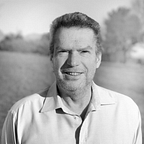Power versus empowerment
“It is a curious thing, Harry, but perhaps those who are best suited to power are those who have never sought it. Those who, like you, have leadership thrust upon them, and take up the mantle because they must, and find to their own surprise that they wear it well.” (J.K. Rowling, Harry Potter and the Deathly Hallows)
All human interactions have a component of power to them, but all these human interactions are expressed in two fundamental processes — control or collaboration. Power can be a positive or negative concept — for example, self-power where you exercise restraint, know and stick to your boundaries, and attain a high level of self-awareness is healthy and even commendable. Unbridled power, on the other hand, is not sustainable and typically leads to manipulation, control, and many other forms of abuse.
Adam Blanch, Australian therapist and writer, notes: “When human beings feel threatened, we usually try to have power over the thing that is threatening us. Of course, the only way to have power over others is through control, and the only way to have control over others is through some form of violence. The most obvious violence is intimidation, physical violence, and threat of physical harm, but it’s the least commonly used.”
When threatened, most people resort to some form of psychological violence — the threat of abandonment or withdrawal of support, manipulation through guilt, threats of social persecution, threats of punishment, gossip and attack on reputation, attacks on identity and worth, subtle gaslighting to cause self-doubt and good old straight out verbal abuse. This is the everyday violence that everyday people use to have everyday control over others.
Collaboration, however, is empowering to say the least. It is the recognition that we all have fears, anxieties, and vulnerabilities and that, rather than attempting to protect our fragility through controlling others or circumstances, we can embrace our own vulnerability without having to avoid it. Understanding our fragility leads us to approach others with compassion, to collaborate with others to find solutions, and work with others to chart a way ahead.
Insightful Innovations notes: “Being empowered implies that we have been selected to enact not only our own highest intentions, but also to honour that which has empowered us. When we are empowered, it may come from a group of people (such as when someone is elected to a position in a government or organization), or it can come from a higher source (spiritually). When we recognise that the source of energy underlying our power comes from outside the confines of the personal individualised ego and originates from a greater source, we move into taking on greater responsibility.”
This is the essence of empowerment. It isn’t about control over others, or control over circumstances, but control over ourselves. The truth is that other people will always do things that hurt us and threaten us, and that life will always present challenges and dangers. The utopian dream that we try to create through control behaviours will forever remain out of our reach.
Blanch insightfully notes further: “When a person can tolerate and experience their feelings, they discover a remarkable source of strength and resilience, and they go from being reaCtive to being Creative. Notice that these two words have the same letters, but with the C in a different place. Being able to experience our vulnerable feelings changes the way we C things. The most remarkable of these changes is that we become able to see that the other person is also afraid, also hurting, also vulnerable and is also trying to hide it. They go from being a villain who is trying to hurt us, to being just another person who is suffering as we are suffering. This is the miracle of empowerment, because if I can see through my defensive reactions and hold my vulnerability in compassion, I become able to see though the defences of others and respond to their vulnerabilities with compassion.”
Mahatma Gandhi, Martin Luther King Jnr, Nelson Mandela, and Mother Teresa are some of the most famous people who discovered the empowerment of vulnerability. They changed the world, not through power, but through compassion. Their capacity to see the good in others, to forgive the violence that we all do, and to reach out to our better nature created enormous change in the world. They united polarised groups by appealing to the common values and aspirations that all human beings share, and by giving us ways to stop seeing the “other” group as the enemy.
Blanch concludes: “Finally, they all taught us one thing — that freedom is not attained through fighting for our rights, but through fulfilling our responsibilities to others, including those who may threaten us. Instead of demanding respect and care and consideration, the gave it, and inspired the same in response from others.”
Originally published at https://www.stretchforgrowth.com on June 5, 2022.
